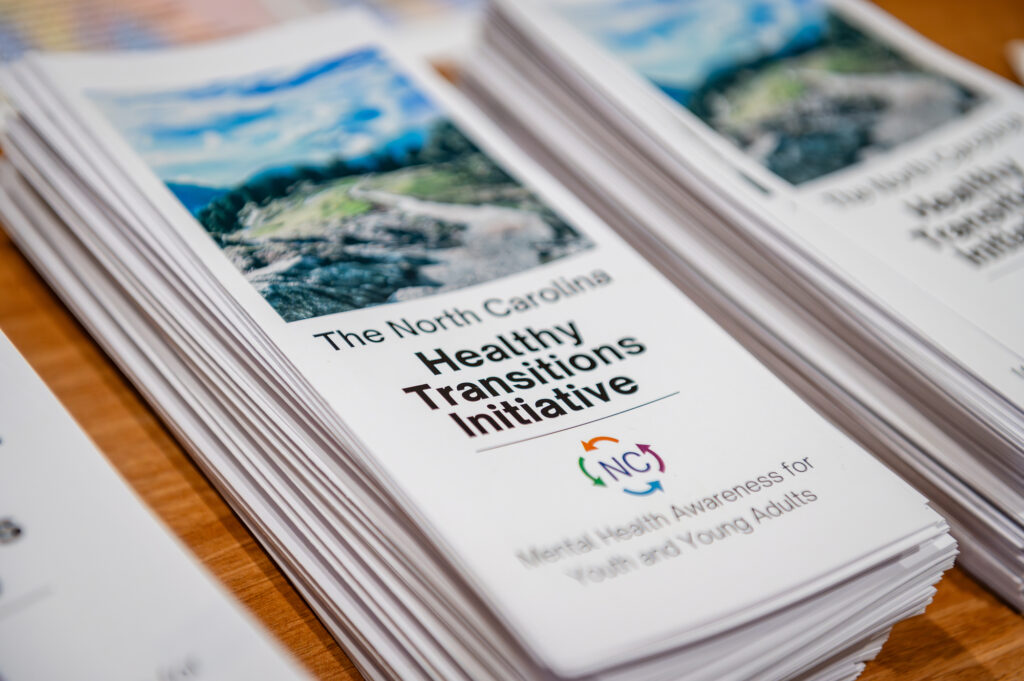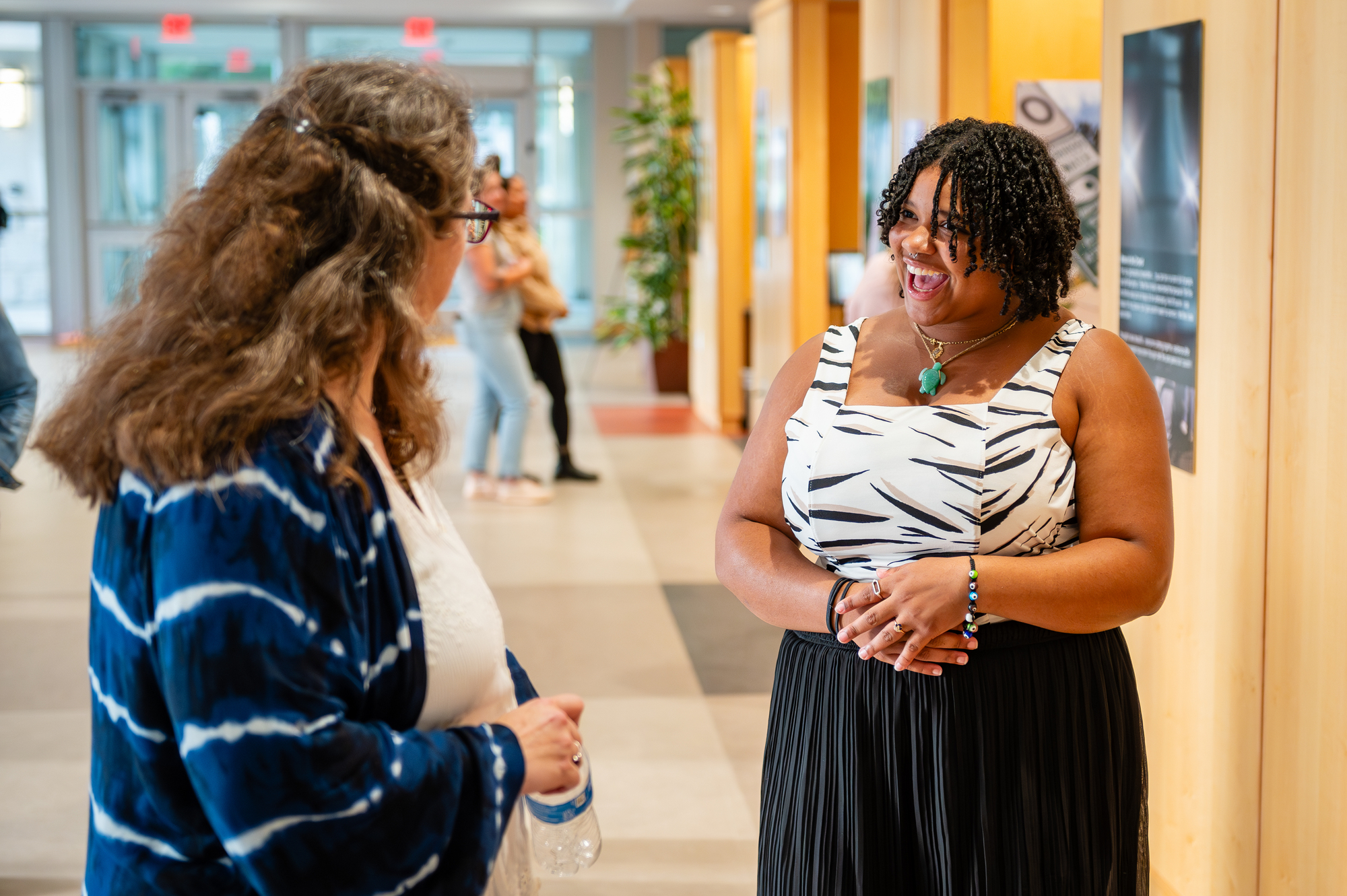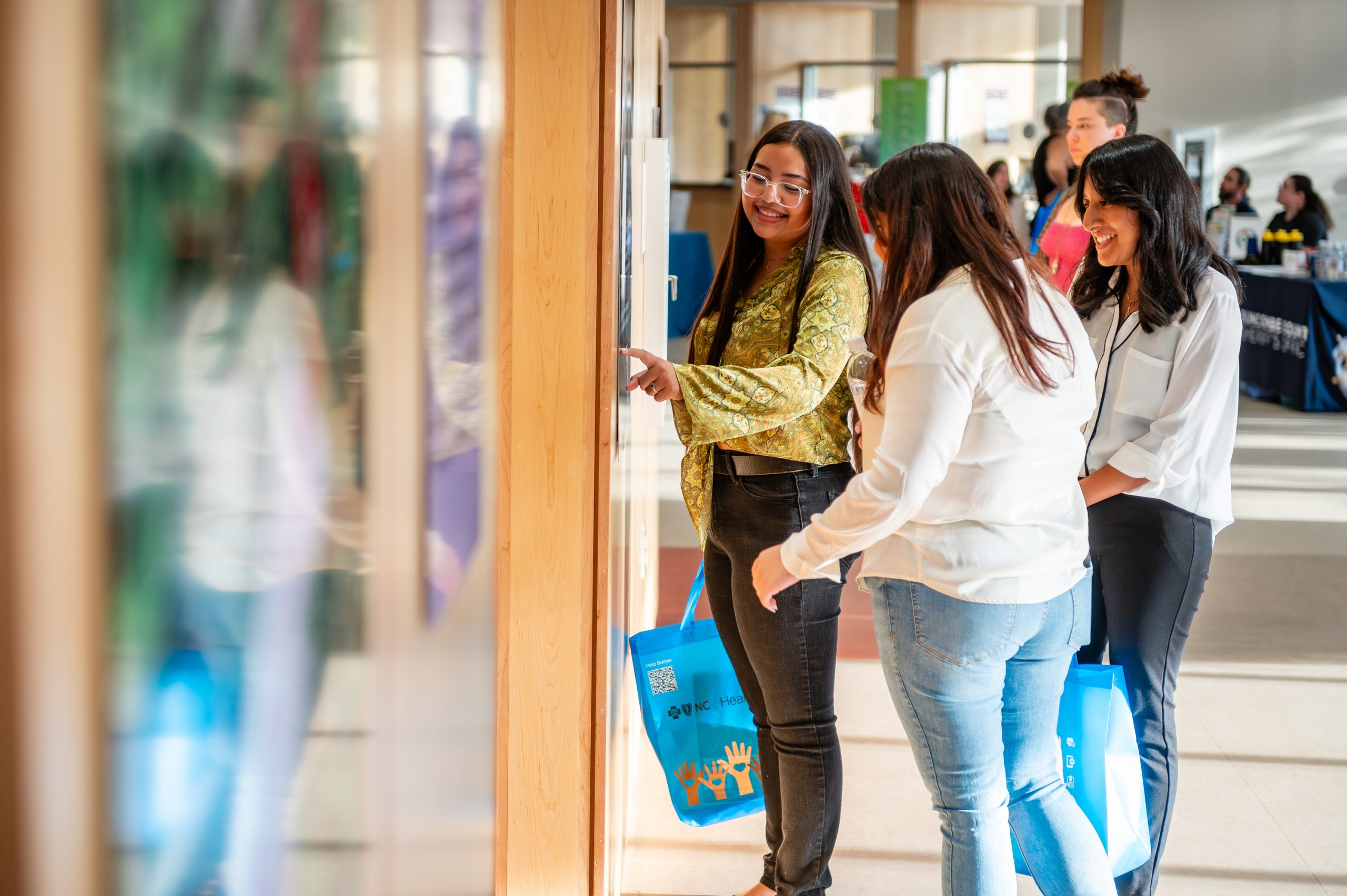Even with perfect mental health and robust resources, the transition from youth to adulthood – between ages 16 and 25 – can be a challenging time. Expectations ramp up, and we’re dropped into unfamiliar, adult systems. Now, imagine you’re a youth struggling with a mental health disorder, and you have few or no supports, financial or otherwise.
“This is a critical period, when youth may be reluctant to or don’t know how to access help, when they are at risk for slipping through the cracks and missing out on the necessary services and supports crucial for their transition to productive and healthy adulthood,” says UNC Greensboro (UNCG) doctoral student Stacy Huff, who serves as a program evaluator for NC Healthy Transitions.
The program – a partnership led by the NC Department of Health and Human Services, implemented by UNCG, and carried out with behavioral health providers contracted by Partners Health Management – aims to improve outcomes for youth in our state diagnosed with mental health and substance use disorders, with a focus on improving access to behavioral health services and supporting youth and young adults as they transition from child-centered services to adult systems of care.
Following a 5-year pilot in Buncombe and Henderson counties, the team recently won a $3.75 million grant from the U.S. Substance Abuse and Mental Health Services Administration to take the program to Burke, Catawba, and Iredell Counties, in collaboration with Children’s Hope Alliance.
NC Healthy Transition benefits
NC Healthy Transitions facilitates a host of services. A clinician does mental health assessments. A transition specialist helps youth set a plan for their futures. An educational and vocational specialist helps participants find meaningful occupations. In the pilot, the vocational specialist even worked with community members to set up apprenticeships.

“There’s been a lot of research showing that you can really avoid exacerbation of behavioral health symptoms by keeping folks engaged and active and connected socially,” explains NC Healthy Transitions project director Willow Burgess-Johnson, a licensed clinical social worker and director of multiple programs housed in the UNCG Center for Youth, Family, and Community Partnerships.
“If people have something that they are passionate about, they are much less likely to experience isolation, withdrawal, depression symptoms, and anxiety.”
Some participants have received assistance applying for Medicaid and SNAP or a driver’s license. Others worked on time management plans for schoolwork or resumes. Some, homeless and couch surfing or about to leave foster care, needed help finding housing.
“Supporting a healthy transition to adulthood isn’t just about providing access to behavioral health services – it’s about meeting young people where they are and addressing their full range of needs, from housing and employment to helping them build meaningful connections with their peers and community,” says Kelly Crosbie, director of the NCDHHS Division of Mental Health, Developmental Disabilities, and Substance Use Services.
NC Healthy Transitions also supports leadership development and advocacy for and by youth, to ensure they have a voice in shaping the services and systems that impact them in their communities.
Youth-driven
The concept of “youth voice and choice” drives the program, the researchers say.
“Most everything we did and talked about was whatever I wanted to do, which was very helpful, because I didn’t feel like I was being forced to do certain things because they thought it would be great for me,” one participant states. The quote is one of the anonymous interview responses collected by the team of evaluators, led by UNCG’s Dr. Tiffany Tovey.
What qualifies as a win varies from participant to participant. “We worked with a young man who was 19 and was so anxious that initially, he was almost nonverbal,” says Burgess-Johnson.
“Our youth peer specialist did multiple visits where she just went and sat and talked to him, even though he didn’t really talk back. She just kept going back, and she was finally able to bring him in for a behavioral health assessment and then get him into a day treatment for adults. He recently completed an assessment where he was able to verbalize, and in the group day program, he’s now communicating with emojis on his phone.”
Peer support
In assessing the pilot program, the evaluators found one service stood out above the others.
“Peer support was the most requested service and our biggest takeaway from the pilot,” says Burgess-Johnson. “Transition-aged youth are most interested in connecting with folks that are near their own age and really want to hear from people who have had similar life experiences.”
Adult peer support specialists – individuals with lived experiences with mental illness or substance use disorders who assist those currently struggling – are part of many health interventions in North Carolina.
But youth peer support specialists are much rarer.
“One of the major outcomes from this project was that we contracted technical assistance and we put together a work group of current youth peer support specialists to develop a service definition for youth peer support to submit to the state of North Carolina for Medicaid support,” says Burgess-Johnson. “We’re hoping the concept is adopted across the state.”
Behavioral health providers who worked with the pilot program are sold on peer support and on the program’s ethos of participant voice as a guide for interventions.
“What we’re hearing from the providers is that they feel like the clients have more buy in, they’re staying in treatment more, and they’re getting more out of it,” says Huff.
“I felt super listened to,” says a participant in the evaluation interviews. “That feels good.”

By Sangeetha Shivaji
Photography by David Lee Row







